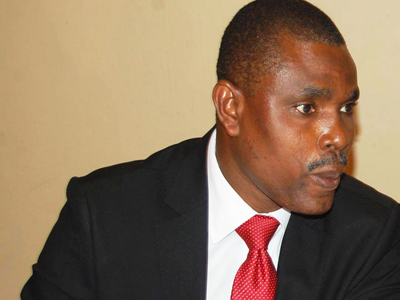Let’s sleep over this FRCN Draft Code
By Ezedi Udom
Mid last month, the Financial Reporting Council of Nigeria (FRCN), the regulatory agency whose mandate includes protecting the investor and stakeholder interest, give guidance on issues relating to financial reporting and corporate governance etc posted the Draft National Code of Corporate Governance in its website. It gave industry stakeholders April 15, 2015 May 14, 2015 (one month) to review the draft Code and send in their comments.
With the short period allowed for comments by FRC for a document proposing such major changes, one can only suspect that FRCN seeks to rush the issuance of the new code before the May 29, 2015 handover date. It also appears that this hurried move is being taken to circumvent a robust debate on the document due to FRCN’s hidden agenda which is to get it passed at all costs.
My biggest concern about this draft code is the FRCN’s reason for the hurry. Surely Jim Obazee is not retiring with the present administration and so it is very obfuscating that the executive secretary of this very important regulatory agency will rush over a major policy document like this draft code which has very far-reaching implications, not only on Nigerian companies but also on the inflow of foreign direct investments into the country.
Even if Obazee were retiring with the Jonathan’s administration, will it not be better for him, and to all of us, to hand over this uncompleted project to an incoming administration than do a shoddy job of passing a draconian policy that will be quashed when he is gone?
A code of this nature, with the potentials of dictating the future of the country, should not be a unilateral decision of a few like minds but should be a product of wide consultations and rich interactions amongst all stakeholders in the industry. Some of the provisions of the draft Code even show the need to tarry awhile and allow for inputs from these relevant stakeholders so as to have an implementable document at the end of the day.
To start with the draft document, as presently designed, is more of a compendium of rules with emphasis on punishment than a code which focuses more on compliance. Global evidence suggests that codes work better simply because they are more flexible than laws and regulations. Also, the Stewardship Code, the world over, sets the principles of effective stewardship by investors which help build confidence in the system and give force to the ‘comply or explain’ system.
The draft Code seeks to achieve a convergence of codes for all players in the financial reporting industry irrespective of their specific industry situations. This one-size-fits-all policy will not be able to address specific industry-related challenges. For example, the draft document proposes a mandatory firm rotation which stipulates that an entity must change its external auditors every five years, at most. 0ther regulatory agencies like Central Bank of Nigeria (CBN) and National Insurance Commission (NAICOM) have varying tenures for the mandatory firm rotation as they deem appropriate for their specific industries/sectors.
Assuming the issue of convergence was not to be, so long as the code is a harmonization of already existing codes, FRCN should make provision for players in the industry to move from the existing platform they are to the proposed one. This is not to be as FRCN is proposing an immediate enforcement of the new code.
Apart from the mere proclamation of FRCN that the draft Code will usher in a corporate governance code with governance safeguards that are more country-specific, contextual and environmentally congruent and conforming to international best practices, not many of the provisions of the Code reflect either the Nigeria’s situation or the international best practices.
Section 5.11 of the draft Code stipulates that no two members of the same extended family shall sit on the board of the same company at the same time. What this means is that no two cousins could aspire to the board of a company at the same time irrespective of their stakes in the company. It also means that if I and my siblings have enough stakes to individually sit on the Board of a company, all of us, except one, must have to appoint ‘cronies’ to sit on the Board on our behalf.
This policy, not only negates the basic principle of Board membership which is mostly stakes-driven, it will not augur well for family owned companies. It will also promote cronyism in the country’s corporate world.
Also Section 5.10.5 of the draft Code stipulates that Directors should not be members of boards of companies in the same industry. This stipulation is incompatible with our situation in Nigeria where holding companies appoint some Board members to chair the Boards of some of their subsidiaries.
Having said this, I advise the FRCN to put on hold this draft code and seek first engage the relevant stakeholders in the industry including regulators, especially the CBN, Securities and Exchange Commission (SEC) and NAICOM etc., trade associations, operators, practitioners etc. This will ensure that a robust discussion, as regards the draft Code, is achieved, which will in turn smoothen the Draft’s rough edges and ensure that the final draft is in tune with time and space.
*Udom, a Financial Communications expert, wrote from Lagos

